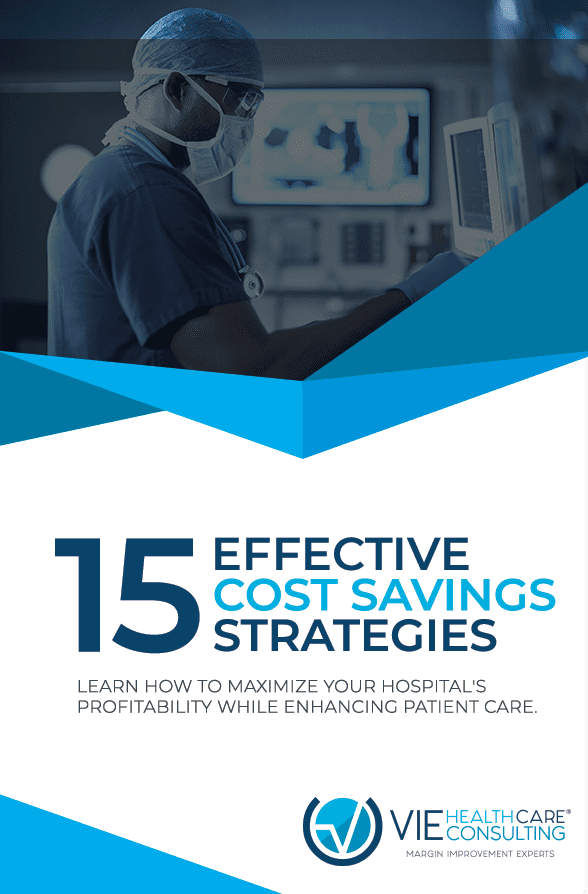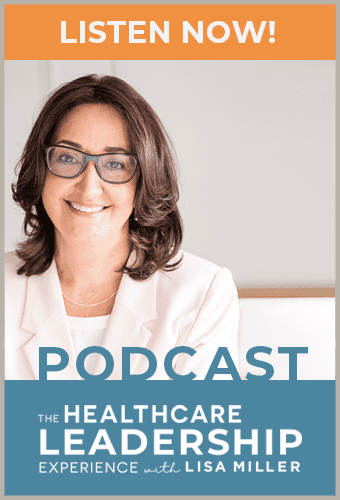10 Reasons Nurses Can Shape The Future of Healthcare
This article was written by Jim Cagliostro.
“Nurses remain uniquely situated to shape healthcare due to their team approach, proximity to the bedside, and understanding of patient care within the hospital and the community.” (Institute of Medicine, 2010; Luther & Hart, 2014).
Most nurses will support this statement, that nurses are uniquely situated to shape the future of healthcare. You may personally support it, or you may have no opinion, or even disagree.
Full disclosure: As the author of this article, I have been a registered nurse since 2007.
My work experience has included large, nationally ranked university hospitals, a smaller community hospital, and a busy outpatient surgery center. I have worked in critical care for most of my career but have also spent some time as a public school nurse and a summer camp nurse.
Through these diverse experiences, I can affirm that nurses are indeed “uniquely situated to shape healthcare” for a variety of reasons. Here are ten of them:
1. Calm under pressure
In nursing, as in the majority of healthcare roles, the stakes are high.
Job performance does not simply determine profitability for one’s organization- it could mean the difference between life and death for a patient. Healthcare presents nurses with situations that are full of varying degrees of urgency. Nurses face pressure and demands from patients who are suffering, family members who are hurting or waiting, physicians expecting the highest standards of care, managers who must consider financial constraints, and administration that requires detailed documentation of events. All this while juggling the concerns of other patients who require attention in potentially life threatening situations.
For nurses, job performance can mean the difference between life and death for their patients.
My first preceptor was convinced that nursing is similar to firefighting in the sense that you must determine which ‘’fires’’ are burning the fastest and pose the biggest threat before addressing the smaller, smoldering ‘’fires.’’
Early in their careers, nurses must learn to effectively prioritize and make life altering decisions while remaining calm under pressure. They are also faced with the responsibility of comforting and reassuring patients who may be very anxious in their state of poor health.
2. Attention to detail
Nurses new to their profession rapidly learn that attention to detail is of paramount importance. Collecting quantitative data such as lab results or vital signs and observing more qualitative data such as subtle changes to a patient’s breath sounds or wound appearance can all be a part of the nurse’s daily responsibility.
The need to accurately measure fluid intake and output as well as administering the exact units of insulin based on a patient’s blood sugar and food intake are other responsibilities of the nurse that require attention to detail.

Failure to follow orders correctly and precisely can lead to the administration of a medication that has lethal consequences for your patient (e.g., while intravenous beta blockers and narcotics are safe and effective medications, an excessive amount of either can lead to death). Nurses recognize that attention to detail is absolutely necessary in their work. It keeps patients safe and optimizes healing and recovery.
3. Critical thinking
Critical thinking can be defined simply as the analysis of facts to form a judgment. It involves the unbiased and rational evaluation of quantitative and qualitative data to come to a conclusion. Nurses are often called on to gather information on a patient, based on information such as a physical assessment, past medical history, family medical history, vital signs, lab results, diagnostic tests, and by a patient’s description of symptoms.
While a specific lab result or diagnostic test can sometimes lead to an immediate diagnosis, nurses also have the responsibility to collect all data and share it with the healthcare team.
A single piece of information is often not enough to determine the underlying cause of a patient’s symptoms. Due to their frequent bedside interactions, the nurse is typically the one to identify a patient who is dehydrated, developing an infection, or experiencing the early stages of dementia, for example. They are best positioned to observe subtle changes which could enable early treatment and a faster patient recovery.
4. Flexibility and creativity
Flexibility and creativity are expected of nurses in several ways:
- Medicine is also constantly evolving, requiring nurses to familiarize themselves with new techniques, tools, procedures, medications, and devices. Not only do they have to become comfortable with their own knowledge of these innovations, they must be able to educate patients on them.
- Nurses must be flexible with regard to their work schedule. A surgery center’s schedule may indicate that the facility should be closed by 4:00 pm, but delays treatments or surgeries that take longer than planned require nurses to remain on-site beyond their expected schedule.
- All nurses are innovators. In 2013, an OB nurse recognized the need for a one-piece garment for infants that had an opening to allow for umbilical cord cleaning and drying. The garment was adopted by multiple hospitals and received a grant for development from Huggies. Nurses have also been credited with developing equipment designed to prevent accidental needle sticks and other workplace injuries common in the healthcare industry.
The flexibility and creativity that characterize so many nurses have empowered nursing to become what it is today and become the foundation for excellent care in countless healthcare organizations.
The flexibility & creativity typical of nurses have become the foundation for excellent care in many healthcare organizations. Click To Tweet
5. Teamwork
Effective teamwork in healthcare is linked to better patient outcomes, higher levels of patient satisfaction, reduced staff turnover, and higher job satisfaction. Nobody knows this more than nurses as much of their work is dependent on physician orders, therapist approval, patient cooperation, and assistance from fellow nurses and other staff members.
Hospitals serve patients around the clock which requires collaboration from every discipline and department to provide quality patient care.
Nurses also understand that the shared knowledge and experience empowers them to consider all treatment modes before selecting the most appropriate course of action.
One of the best examples of the need for teamwork is in the case of a “code blue” or another type of medical emergency. For example, one person must recognize the need for help and call for it. Multiple people must perform the necessary functions of CPR (breaths and compressions), while others must help administer drugs and document vital signs and interventions provided. The need for teamwork in these situations is vital to the survival of the patient. In nursing, if teamwork suffers then patient outcomes suffer.
6. Communication
Due to the nature of their role, nurses must be excellent communicators and develop:
- Active listening skills.
- Effective verbal communication.
- Non-verbal communication.
- Empathy and compassion.
- The ability to gain a stranger’s trust.
- Cultural awareness.
- The ability to instruct and explain clearly.
Nurses must also be adaptable. They are expected to act as teachers, coaches, cheerleaders, therapists, drill sergeants, parents, and friends at any given moment. Patient care and outcomes are greatly dependent on the effectiveness of nurse communication with other healthcare providers.
7. Empathy and compassion
Empathy can be likened to the old adage of “putting yourself in someone else’s shoes.” The challenge of performing the daily tasks and duties of a nurse while also feeling empathy for a patient cannot be understated.
They must strike a balance between becoming too emotionally invested in a patient’s situation (which can take a large emotional toll on the caregiver) and appearing to be distant or cold (which would prove detrimental to the patient’s wellbeing). This type of stability requires strong emotional intelligence and can take years to master.
Compassion can be defined as a sympathetic awareness of another’s distress along with a desire to alleviate it.
This is often why many people choose nursing as a career. Again, a healthy balance must be established by every practicing nurse due to the risk of “compassion fatigue”.
Nurses who learn to appropriately show empathy and compassion build a stronger connection with their patients which can lead to greater trust and better outcomes.
8. Integrity
For the 18th year in a row nursing has been voted “the most trusted profession” in the country (Gallup, 2019). At a time when healthcare is under pressure to be transparent, establishing patient trust can be difficult.
Nursing has been voted the most trusted profession in the US for 18 consecutive years. Click To Tweet
Patients entrust their lives to the nurses which is why integrity is so important in nursing. A lack of integrity has the potential to damage the patient-provider relationship and have repercussions that would impact the patient’s overall experience and outcome.
Integrity is crucial to the character of any and every nurse.
9. Prioritize the patient
Nurses by training recognize patients as their number one priority but in the financially pressured, complex world of healthcare, this can be overlooked in other areas.
As a patient advocate, nurses may speak up to physicians, fellow nurses, family members, friends, and even the patient themselves in order to serve them effectively and ensure positive outcomes. This is a difficult yet necessary element of nursing.
According to the American Nurses Association (ANA), Provisions 1-3 state:
- Provision 1 – The nurse practices with compassion and respect for the inherent dignity, worth, and personal attributes of every person, without prejudice.
- Provision 2 – The nurse’s primary commitment is to the patient, whether an individual, family, group, community, or population.
- Provision 3 – The nurse promotes, advocates for, and protects the rights, health and safety of the patient.
10. Understanding of the community
Through their work, nurses develop a thorough understanding of the health needs of the patient population and the most common issues facing their community. They are also more aware of community resources and the services available to enhance long-term patient health.

Nurses provide discharge instructions along with answers to any questions presented by the patient. This equips them to become better care coordinators, connecting patients with the services that will help to ensure their long-term health.
How can nurses “shape healthcare”?
In recent years, it has become difficult to determine whether the voice of nursing has grown stronger or if the healthcare industry is simply beginning to listen. What is certain is that nurses have significant and strong influence today.
In recent years, many leadership positions in hospitals across the country have been filled by registered nurses. “The bedside” in hospitals is the frontline of healthcare and this is where almost every nurse begins and spends much of their career.
The skills and character developed by the average nurse extend far beyond the ten characteristics described above.
Humility and self-sacrifice are the norm for many dedicated nurses who speak of 12+ hour shifts in which they did not get a lunch break or even a chance to use the restroom because of the needs of their patients. Others will describe the need to work overtime because patients could not be left without a caregiver. Nurses keep patients at the center of everything they do.
Nurses have not simply learned to survive the constantly changing world of healthcare.
They “historically respond to changes in regulation and financing of healthcare with innovation and professional responsibility.” (Cleveland, K.A., Motter, T., Smith, Y., (May 31, 2019) “Affordable Care: Harnessing the Power of Nurses” OJIN: The Online Journal of Issues in Nursing Vol. 24, No. 2, Manuscript 2).
In other words, while prioritizing patients they have simultaneously found a way to advance patient care and improve outcomes in the face of increasing regulation and financial burden.
As hospitals face increasing regulation and financial burden, operating margins are under intense pressure. The challenges and solutions are complex.
Consulting with experts like VIE Healthcare® Consulting helps your organization to identify significant cost savings and improve operational efficiency. At the same time, your organization needs individuals can rapidly identify where those cost savings may be achieved and how to improve efficiency in the day-to-day operations.
You need leaders who are committed to your patients in their decision making process, who are committed to patient safety, outcomes, and the patient experience.
The bedside experience of nurses lays the foundation to create leaders who are ready and eager to move healthcare into the future. The future of healthcare is indeed bright if those on the frontlines have a voice that is heard.
This is why I strongly agree with the claim that “nurses are uniquely situated to shape healthcare” for the foreseeable future.
For a complimentary consultation, call our office today at 1-888-484-3332, Ext 500 or email us at info@viehealthcare.com.



